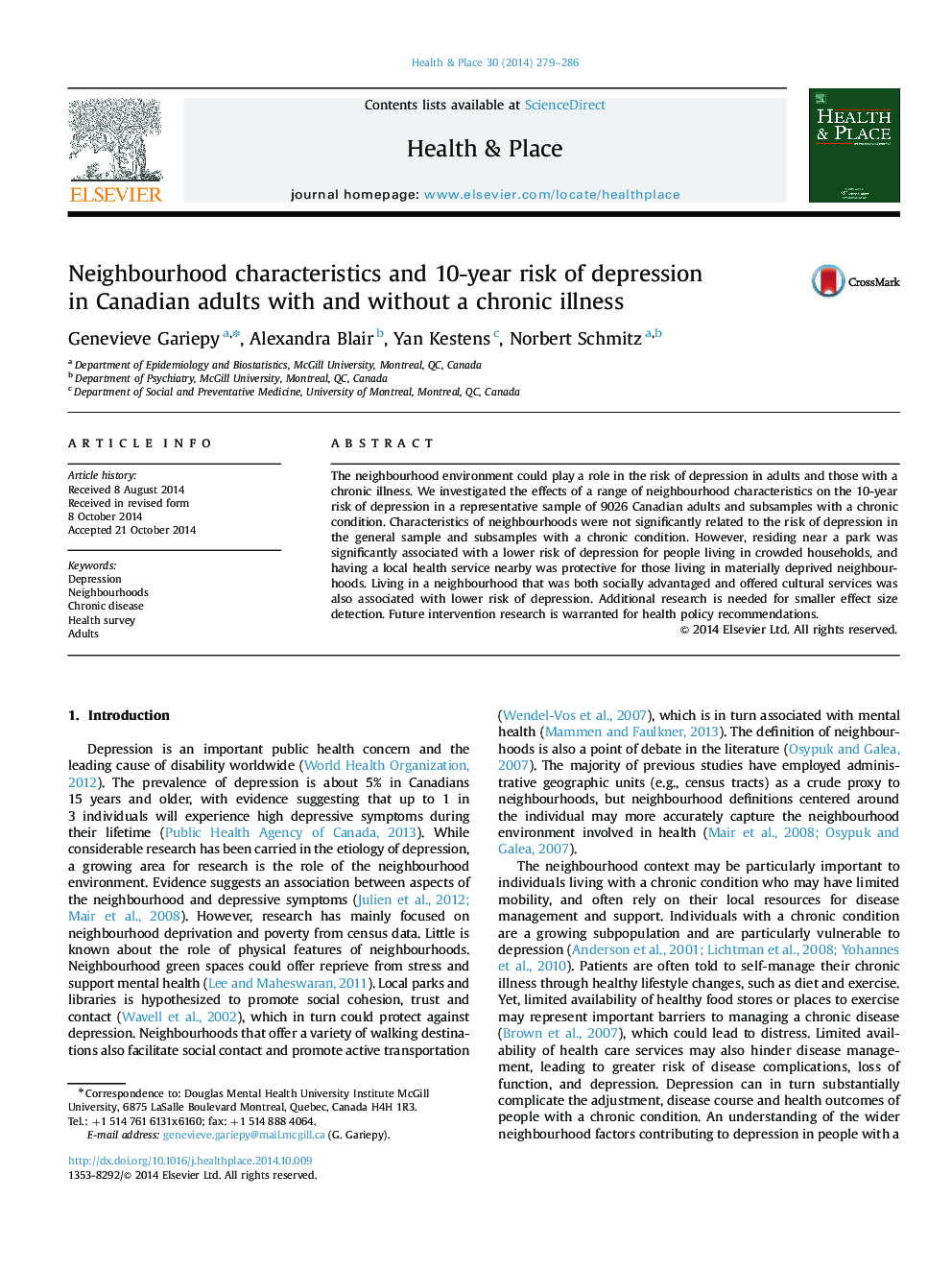| Article ID | Journal | Published Year | Pages | File Type |
|---|---|---|---|---|
| 7458538 | Health & Place | 2014 | 8 Pages |
Abstract
The neighbourhood environment could play a role in the risk of depression in adults and those with a chronic illness. We investigated the effects of a range of neighbourhood characteristics on the 10-year risk of depression in a representative sample of 9026 Canadian adults and subsamples with a chronic condition. Characteristics of neighbourhoods were not significantly related to the risk of depression in the general sample and subsamples with a chronic condition. However, residing near a park was significantly associated with a lower risk of depression for people living in crowded households, and having a local health service nearby was protective for those living in materially deprived neighbourhoods. Living in a neighbourhood that was both socially advantaged and offered cultural services was also associated with lower risk of depression. Additional research is needed for smaller effect size detection. Future intervention research is warranted for health policy recommendations.
Related Topics
Health Sciences
Medicine and Dentistry
Public Health and Health Policy
Authors
Genevieve Gariepy, Alexandra Blair, Yan Kestens, Norbert Schmitz,
